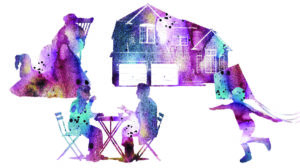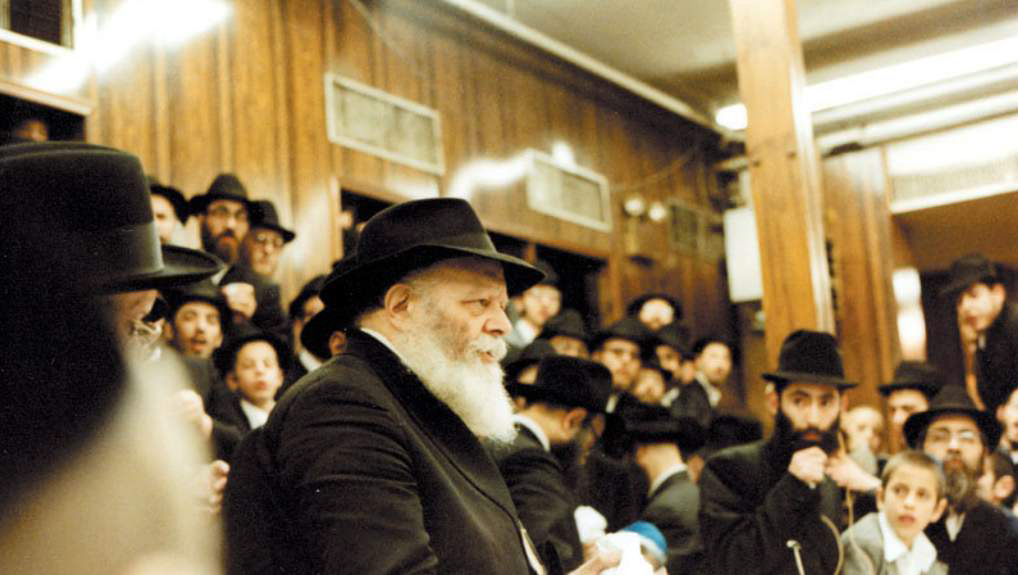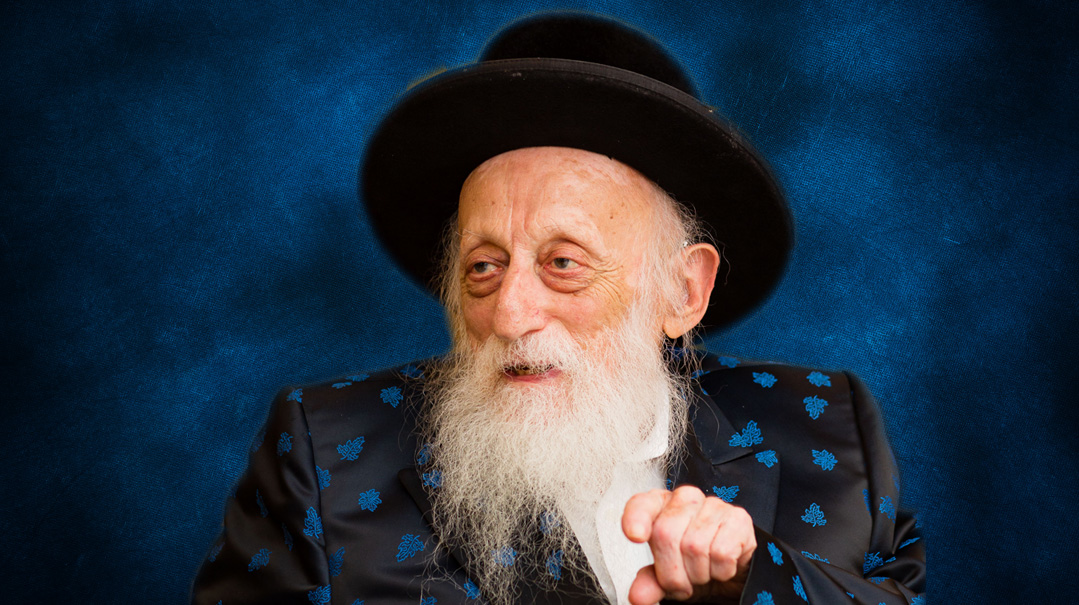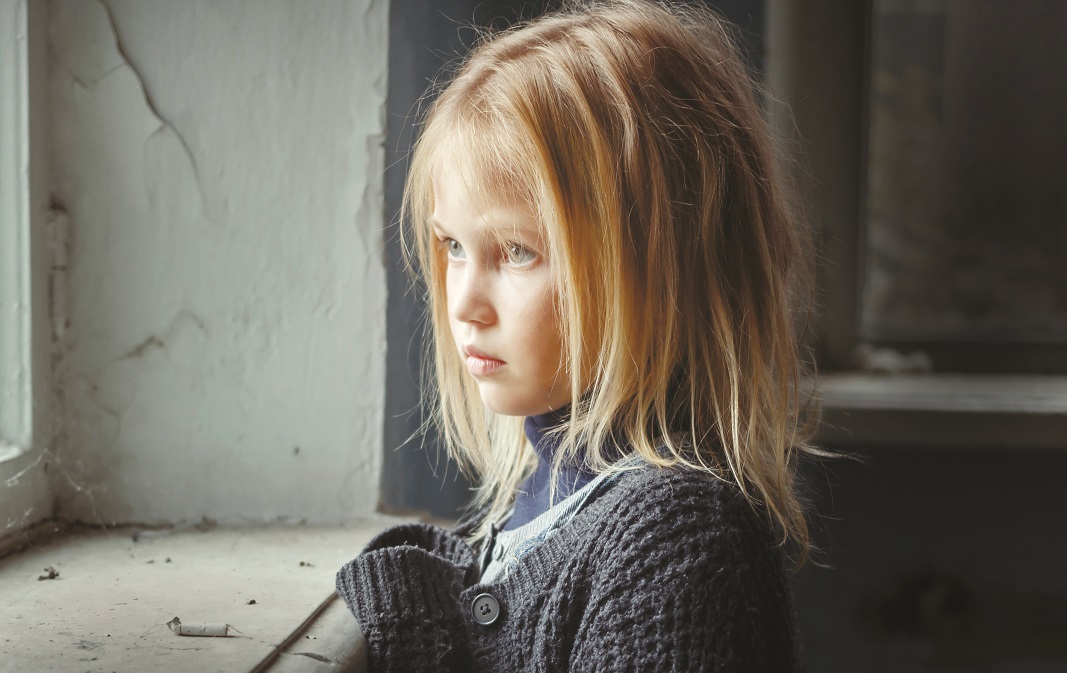The Song of the Seder

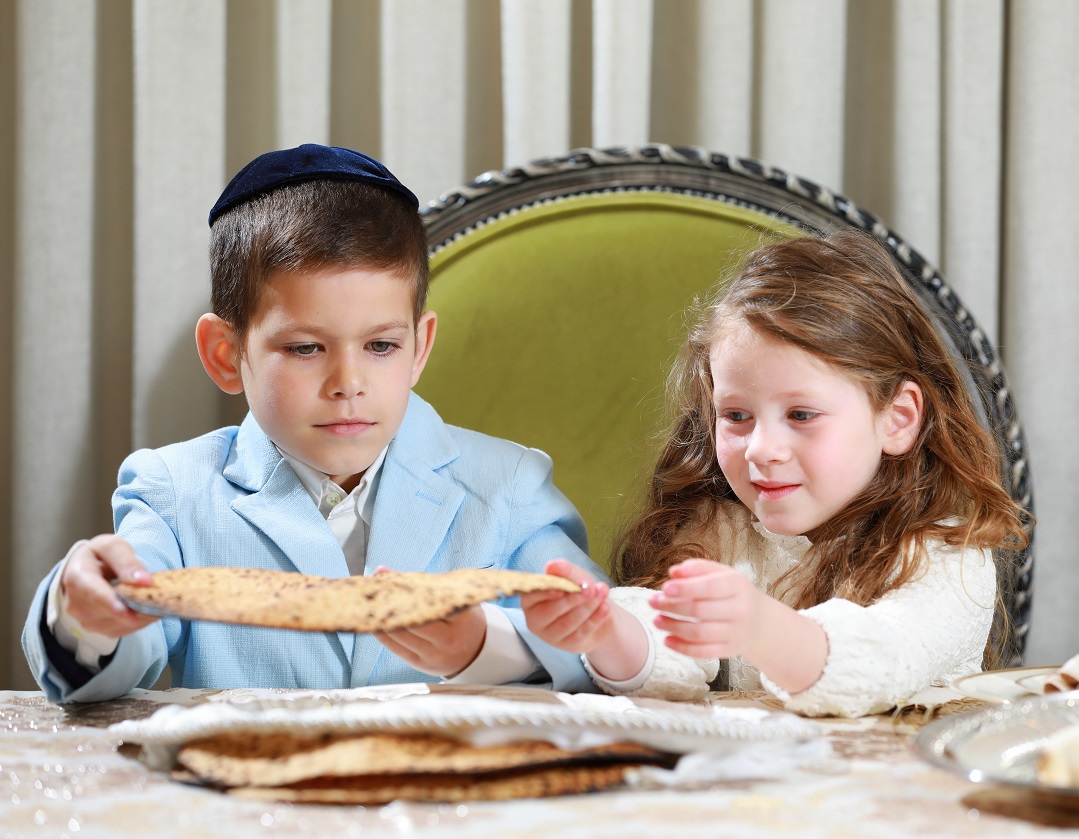
Kadeish
Faigy Peritzman
My Uncle Fritz was a solitary soul.
As a child, I was blissfully unaware of the pain and loneliness he must have lived with daily. Instead I was jealous — Uncle Fritz lived in a hotel room all year-round! What could be more fun?
When he came to visit us at my grandparents’ house, there was no sadness in his demeanor. His face was always wreathed in a wide smile. He was a sweet, self-effacing man, full of love for his great-nieces and great-nephews, his only children.
In 1939, Uncle Fritz was engaged to a lovely yekkish girl; they were planning their future despite the ugly backdrop of their homeland. But when my grandparents (his sister and brother-in-law) managed to escape shortly after the war broke out in Poland, Uncle Fritz recognized the handwriting on the wall, and he too fled right before Germany’s gates slammed shut. His kallah never made it out.
Uncle Fritz made his way to the United States, setting up his home in Portland, Oregon, close enough to his sister in Seattle. He joined my grandfather’s business and slowly set about trying to rebuild his life.
In his late forties, Uncle Fritz became engaged again. His happiness was tangible and he cautiously allowed himself to hope once again as he bought his kallah a beautiful set of silverware to grace their future Shabbos table.
Several months later, his kallah succumbed to an aggressive form of cancer. Uncle Fritz put away the silver together with his dreams, and resigned himself to bachelorhood.
Yet he never became bitter, never complained. He stayed connected to his family, seemingly content in his position as doting uncle. Even as an adult, I can’t fathom the loneliness he must have lived with on a daily basis.
Fifty years after the war, the Nazis yemach shemam scored another victory. My Uncle Fritz was niftar, the final remnant of a once proud German mishpachah. He was the last of the Lowensteins. The family is no more, the name buried with the solitary death of a solitary soul.
(Excerpted from Family First, Issue 639)
Urchatz
Leah Greenburg
"Remember not to say the brachah!”
Urchatz is the only time the usual words aren’t spoken — by everyone this time.
It makes me think of you, my son.
Do I say the wrong thing?
Probably.
But honestly. What’s so hard? You know how to talk, so TALK!
I don’t mean to make it about me, because you’re clearly suffering so much, but… so am I. I feel like such a failure as a parent.
And the comments I get! I’ve heard:
“You have to be firm. Knock this nonsense out now when he’s young.”
“It’s bad middos — when I say hello to him, he should answer back,” and even “Something must have happened to cause it. He was probably abused.”
Each one feels like a stab.
Sometimes I want to shriek I don’t get it either! He can talk at home! I don’t understand where this selective mutism came from or what it is!
I get defensive, then paranoid, when people say, “But how can you be sure?” I’m not sure of anything anymore.
You weren’t abused… Were you?
I’m doubting myself. I’m doubting everything I’ve ever known.
I didn’t know talking was scary. But clearly it is. You can’t even tell me what’s so scary about talking. It just is, you say.
It hurts.
(Excerpted from Family First, Issue 639)
Karpas
Faigy Weinberger
I enter my in-laws’ house. The atmosphere is calm and cheerful, completely unlike the harried pre-Pesach atmosphere in my childhood home. It’s the first time I experience an unfamiliar Pesach. Our families seem pretty similar on the outside, but walking into the house makes me realize we’re worlds apart.
I resolve to emulate this calmness when I one day make Pesach.
Too soon, we’re preparing for our first Seder at home. I write lists and more lists, reviewing each detail of Pesach making. When my husband asks, “Are you sure we need to cover the counters with three layers of foil?” I feel positive that this is how it should be done.
My husband makes the charoses the way his father did. I burn a chicken wing on the open stove flame like my father did. And I cook potatoes for karpas like my family does, although my husband insists that radishes are all we need.
Ten years pass.
It’s Erev Pesach again, and there’s lots to do. I review the to-do list tacked onto the inside of the kitchen cabinet door. In the sea of silver, the yellowed paper is my guidepost.
Cook potatoes, the list says. I pause. It’s been almost two decades of marriage, and I still cook potatoes and offer both potatoes and radishes for karpas.
Why?
I think about Pesach in my parents’ home and Pesach at my in-laws. I think about my reluctance to acknowledge the minor and major cultural differences between us.
With a sudden resolve, I cross cook potatoes off the list and feel liberated.
The Seder is off to a calm start. I feel accomplished — and not because of the practical feat of pulling it all together. I wait for someone to notice that there are no cooked potatoes. Neither my big kids nor my husband comment.
(Excerpted from Family First, Issue 639)
Oops! We could not locate your form.




